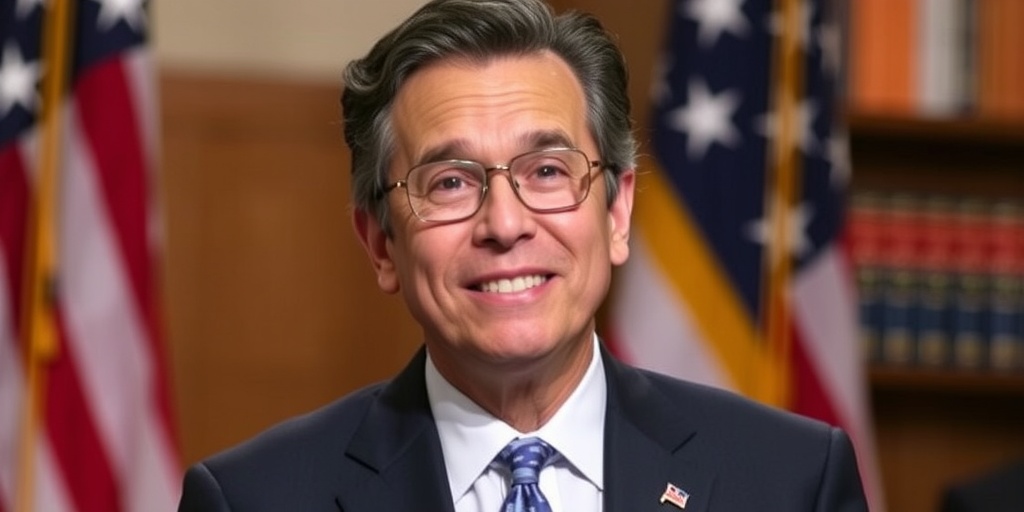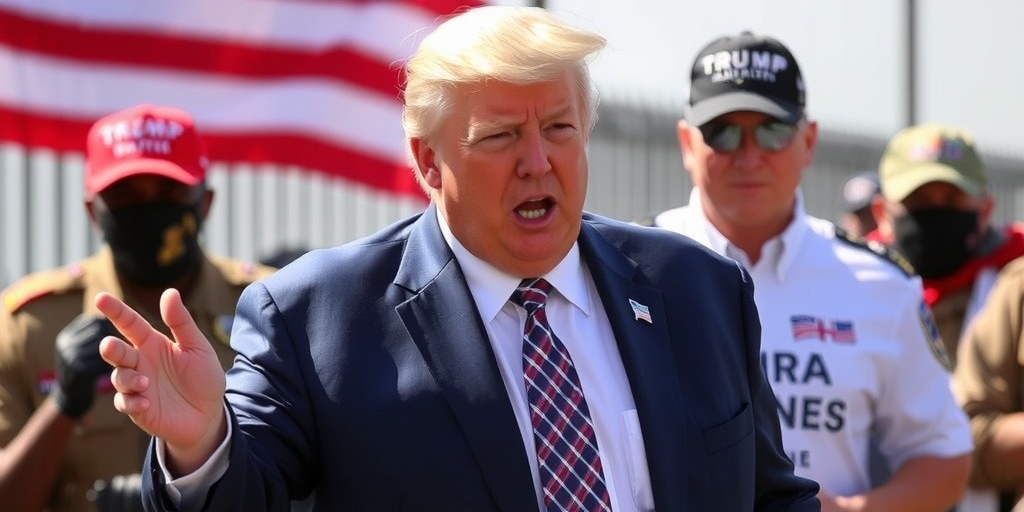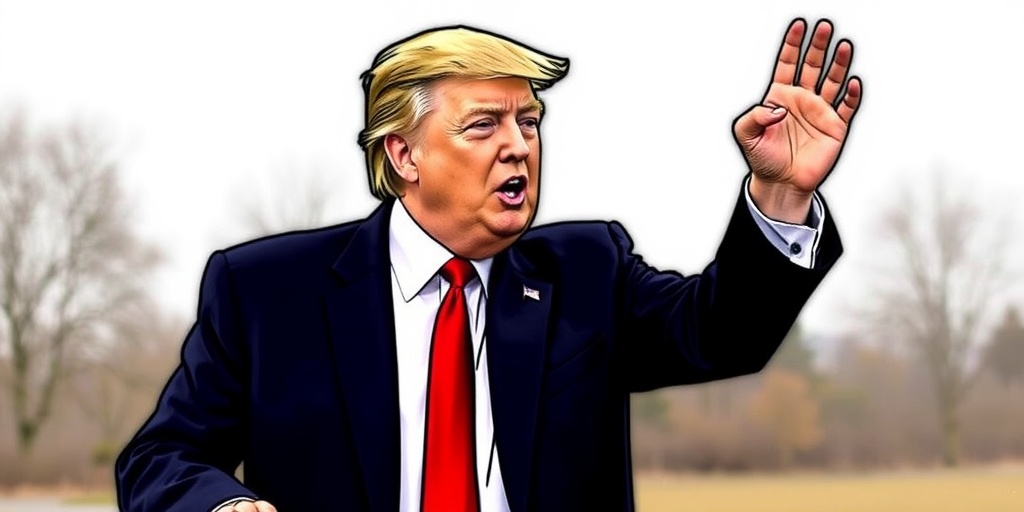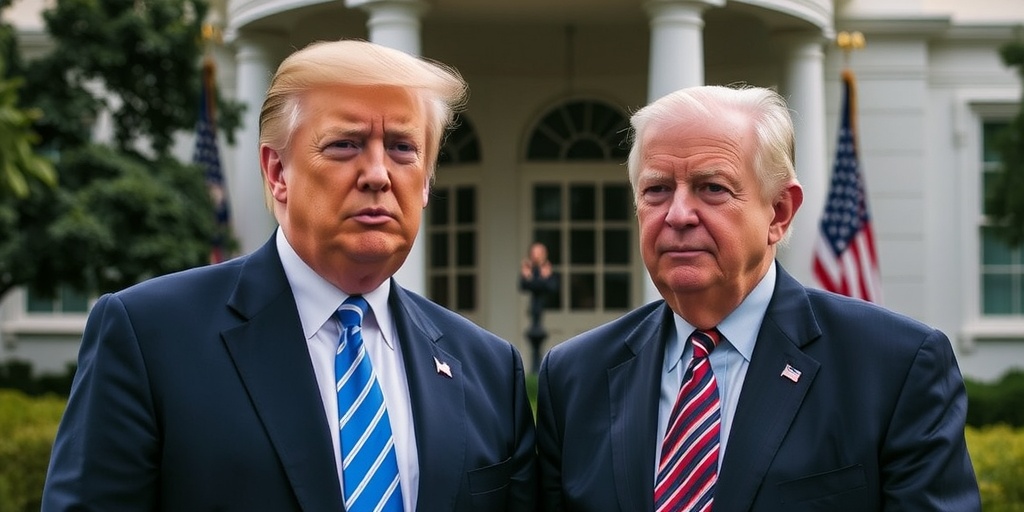Now Reading: Trump’s Aid Freeze for Nuclear Inspectors Undermines Iran Policy
-
01
Trump’s Aid Freeze for Nuclear Inspectors Undermines Iran Policy
Trump’s Aid Freeze for Nuclear Inspectors Undermines Iran Policy
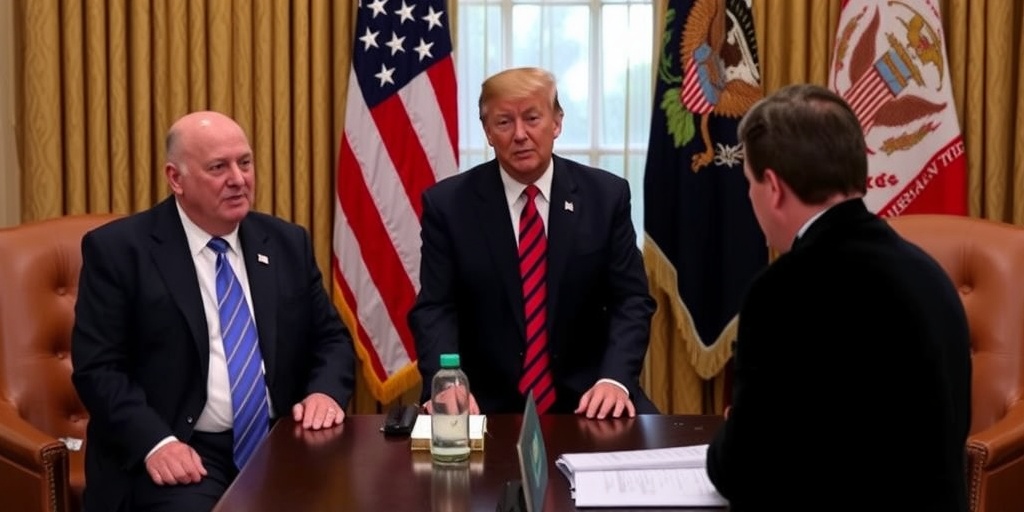
Title: Suspensions of U.S. Aid to Nuclear Inspection Programs Raise Concerns Over Non-Proliferation Efforts
In late January, the administration of former President Trump halted key programs that provide American assistance to international nuclear inspectors, an action that risks undermining the objective of preventing Iran from developing nuclear weapons. Although one of the programs has been partially reinstated, analysts suggest that the disruptions have already eroded the trust foundational to decades-long collaborative efforts aimed at monitoring Iran’s nuclear activities.
Experts in nuclear nonproliferation express alarm that the aid suspensions could deter skilled professionals from entering the field, thus hampering global initiatives to counteract the spread of nuclear arms. The changes have ignited uncertainty and confusion regarding programs that traditionally garnered bipartisan support in the U.S. government, raising fears about the stability of future international cooperation in nuclear safety and security.
Renowned nuclear expert Terry C. Wallace Jr., a former director of the Los Alamos National Laboratory, fiercely criticized these policy shifts, asserting, "These are disastrous policies. They go against science and partnerships that lift a nation."
The specifics of the aid cuts were revealed by current and former U.S. government nuclear experts who preferred to remain anonymous due to the sensitive nature of their positions. The International Atomic Energy Agency (IAEA), primarily funded through U.S. support, conducts vital inspections to combat various nuclear threats globally. Recently, traces of highly processed uranium were discovered at four sites in Iran, heightening concerns that Tehran may possess covert nuclear intentions.
Shortly after taking office, Trump signed an executive order suspending U.S. foreign aid programs for a comprehensive assessment, potentially leading to their restructuring or termination. Among the most affected are programs designed to fight hunger and disease in developing nations, in addition to the nonproliferation initiatives.
The executive order has significant implications; it suspended funding from vital Energy Department laboratories that support the IAEA inspector corps. Two critical programs were particularly impacted: one focusing on recruiting and training nuclear inspectors, while the other concentrates on the sophisticated analysis of environmental samples collected from inspections. These programs have historically bridged the gap between the IAEA inspectors and U.S. nuclear laboratories, facilitating the transfer of cutting-edge technology and expertise.
Despite the State Department’s efforts to reassure the public about the ongoing commitment to national security, skepticism remains. In response to inquiries about the aid cuts, the State Department maintained that certain U.S. assistance mechanisms for the IAEA would continue, while alluding to the possibility of further aid discontinuation without providing clear details regarding the frozen programs.
Recent discussions have also suggested that the Pentagon might explore similar cuts to programs aimed at preventing the proliferation of chemical, biological, and nuclear weapons, adding further uncertainties to joint global initiatives.
Countering Iran’s nuclear advancements has been touted as a primary foreign policy goal of the Trump administration. During his Senate confirmation hearing, Secretary of State Marco Rubio emphasized that a nuclear-armed Iran "cannot be allowed under any circumstances." However, it is unclear if the administration fully grasps the intricate relationship between the U.S. and the IAEA, a partnership enhanced by American funding that enables the agency to operate effectively in areas where U.S. access may be restricted.
U.S. assistance has invariably assisted IAEA inspectors in uncovering Iran’s clandestine nuclear activities. Notably, these efforts have contributed to international responses to illicit nuclear shipments, thus proving to be a two-way street that enhances global safety.
Importantly, these nonproliferation aid programs contribute to American jobs at the IAEA, reinforcing the notion that these undertakings are mutually beneficial rather than altruistic endeavors. As the IAEA also advocates for peaceful uses of nuclear energy, its role in preventing the diversion of nuclear materials for bomb-making is critical.
The network of federal entities involved in combating the global spread of weapons of mass destruction has expanded significantly, now encompassing the Departments of State, Energy, Defense, and Homeland Security as well as the Nuclear Regulatory Commission. The National Nuclear Security Administration plans to allocate approximately $2.5 billion for nuclear nonproliferation in the current fiscal year, reflecting a continued commitment to this cause despite recent interruptions.
However, past criticisms from Republican factions have cast doubt on the efficacy of nonproliferation programs, suggesting the need for restructuring. Under Trump’s directives, previous proposals highlighted intentions to significantly cut funding for means aimed at curtailing the spread of weapons of mass destruction.
The executive order signed on January 20 made no explicit reference to halting nuclear-related foreign aid, yet since then, there have been no public comments from laboratory directors or government officials regarding the suspensions. Meanwhile, internal debates appear to be taking place regarding the future of these essential programs.
In late January, the recruiting initiative tied to the Brookhaven National Laboratory in New York was among the first to feel the impact of the funding freeze. This program is instrumental in recruiting nuclear inspectors for the IAEA and developing key inspection technologies.
As of mid-February, reports indicated that the Oak Ridge National Laboratory’s program had been reinstated following discussions among administration officials, while the Brookhaven program awaited administrative approval for broader resumption. The expectation is that the urgency surrounding Iranian nuclear activities will prompt quick unblocking of the suspended programs, although concerns regarding the overall effectiveness of the government’s commitment to nonproliferation remain.
Ultimately, the future of nuclear nonproliferation initiatives hangs in the balance, as experts await clarity on funding streams and the administration’s overall strategy. The ongoing dialogue highlights a complex interplay of national security, international cooperation, and the criticality of maintaining vigilant oversight in the face of emerging nuclear threats.
Stay Informed With the Latest & Most Important News
Previous Post
Next Post
-
 01New technology breakthrough has everyone talking right now
01New technology breakthrough has everyone talking right now -
 02Unbelievable life hack everyone needs to try today
02Unbelievable life hack everyone needs to try today -
 03Fascinating discovery found buried deep beneath the ocean
03Fascinating discovery found buried deep beneath the ocean -
 04Man invents genius device that solves everyday problems
04Man invents genius device that solves everyday problems -
 05Shocking discovery that changes what we know forever
05Shocking discovery that changes what we know forever -
 06Internet goes wild over celebrity’s unexpected fashion choice
06Internet goes wild over celebrity’s unexpected fashion choice -
 07Rare animal sighting stuns scientists and wildlife lovers
07Rare animal sighting stuns scientists and wildlife lovers













